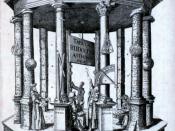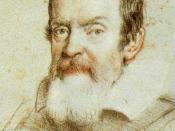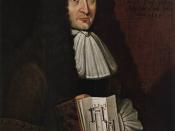A defining element in the scientific world occurred during the seventeenth and eighteenth centuries, beginning with Copernicus and ending with Isaac Newton. The Scientific Revolution changed the world forever in terms of how man would think and what man would be capable of achieving in the realm of science. This definitive shift in the scientific community was more than merely a rise in rational thought; it was a radical new outlook with far less emphasis on religion as an explanation for the natural world. This represented a dramatic alteration in the methods of thought used for centuries which gave rise to new thoughts and ideas, and had a dynamic impact on the future. The changes that occurred during the Scientific Revolution greatly changed the outlook and capabilities of those involved and the generations to come.
Throughout the Middle Ages (500-1350), the field of science experienced little change. During the first part of the Middle Ages, the ideas of the world were largely dependent on the teachings of the Catholic Church, with philosophical and scientific findings monitored for sanction by the Church .
The major teaching of the Greek philosophers, known as the Aristotelian System, had been lost to the Western Europeans until the late Middle Ages. In the twelfth century they were translated by the Arabs that had preserved them. The world views that had once been centered on the truths of the Bible were shifted when the Aristotelian system was incorporated in official Church doctrine . With the Protestant Reformation and subsequent Catholic Counter-Reformation, the religious context of Europe was changed drastically. When the Protestants broke from the Catholic Church, the strict censorship of the church was reinvigorated . Despite this, the Scientific Revolution was still able to flourish.
Society at the time was still largely guided by religion;...


